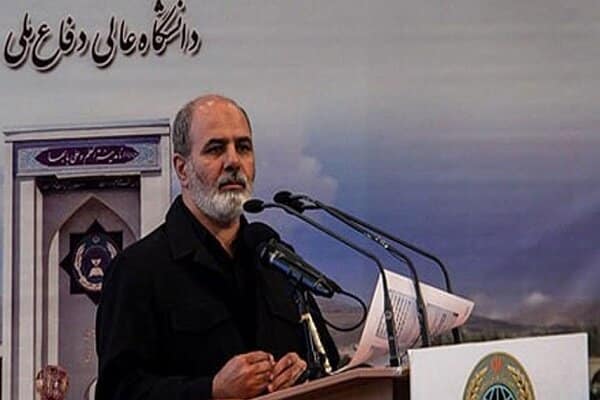Iranian President Ebrahim Raeisi reportedly issued a decree on Monday appointing Ali Akbar Ahmadian as the new Secretary of the Supreme National Security Council (SNSC) of Iran. This decision comes with gratitude expressed by Raeisi towards the outgoing Secretary, Shamkhani, for his commendable 10-year service at the helm of the SNSC.
Shamkhani, who assumed the position in 2013, had previously held significant posts, including Defense Minister and Commander of Iran’s Army and Islamic Revolutionary Guard Corps (IRGC) Navies.
Meanwhile, Ahmadian, the newly appointed Secretary, brings his experience as the Former Chief of the IRGC Joint Staff.
Who is Ali Akbar Ahmadian?
Ahmadian’s career trajectory includes his appointment as Commander of the IRGC Navy in August 1997. He reportedly ascended to the position of Chief of the IRGC Joint Staff in July 2000, before being succeeded by Brigadier General Mohammad Hejazi in September 2007. Notably, he served as the head of Imam Hoseyn University (Imam Hussein University of the Revolutionary Guards) from October 2005 until his departure in July 2007. Subsequently, in September 2007, Ahmadian assumed the role of head of the IRGC Strategic Studies Centre. Born around 1961 in Kerman, Iran, he brings a wealth of knowledge and strategic acumen to his new appointment.
Ahmadian’s past has been marred by various international sanctions. The United Nations Security Council designated him as a person linked to Iran’s Islamic Revolutionary Guard Corps on March 24, 2007, through resolution 1737 (2006). This designation was further reinforced by UN Security Council resolution 2231 (2015). Member states are required to freeze assets owned or controlled by Ahmadian, directly or indirectly, and ensure that these assets are not made accessible to him.
Moreover, the European Union listed Ahmadian as a person connected to Iran’s Islamic Revolutionary Guard Corps on April 21, 2007. EU member states must freeze his assets, with certain exceptions, and prevent any availability of assets to him. Additionally, member states must restrict his entry into or transit through their territories, with exceptions as defined.
Further amplifying the impact of sanctions, the United States Department of the Treasury’s Office of Foreign Assets Control (OFAC) added Ahmadian to the Specially Designated Nationals (SDN) list on October 25, 2007. This action resulted in freezing his assets under US jurisdiction and imposing a prohibition on transactions involving US parties, in accordance with Executive Order 13382. The order specifically targets individuals involved in the proliferation of weapons of mass destruction (WMD) and their delivery systems. Foreign entities facilitating transactions for Ahmadian or providing assistance to him also face potential US sanctions. Additionally, he falls under the purview of the Iranian Financial Sanctions Regulations. Foreign financial institutions facilitating transactions for Ahmadian may be prohibited from opening or maintaining correspondent or payable-through accounts in the United States.
The governments of Australia, Japan and the United Kingdom have also imposed sanctions, restricting business and financial transactions with Ahmadian and possibly freezing his assets within their respective countries.
Image Credit: Mehr News Agency



















